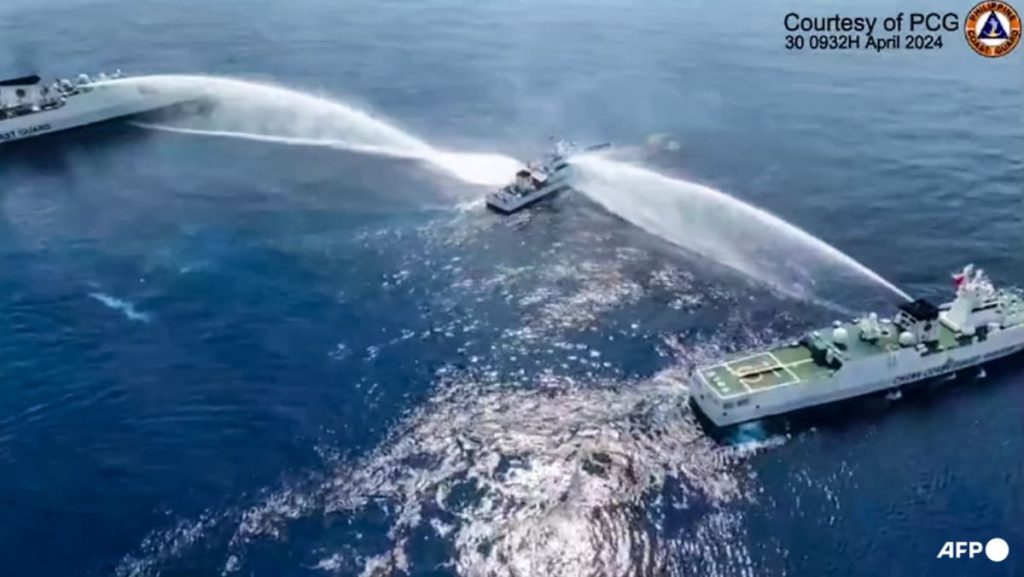The Philippines accused China’s coast guard of harassment and damaging one of its boats in the South China Sea, particularly at the Scarborough Shoal. The Philippine coast guard emphasized that they stood their ground at the shoal, despite one of their vessels sustaining damage from the use of water cannon by two Chinese coast guard ships. This incident serves as evidence of the forceful pressure used by China’s coast guard as they harassed the Philippine vessels. The Philippines affirmed their commitment to carrying out legitimate operations to support Filipino fishermen and ensure their safety in the disputed area.
The Scarborough Shoal, located in the South China Sea, is a hotspot for territorial disputes among several countries and serves as a key battleground in the region. Despite no country having sovereignty over the atoll, it falls within the Philippines’ exclusive economic zone. China has maintained control over the shoal for over a decade, leading to tensions and confrontations with other countries in the area. The waters around the shoal’s lagoon are particularly contentious, as they have been a traditional sanctuary for vessels during storms, further fueling disputes.
In response to the incident, China’s coast guard claimed to have expelled the Philippine vessels from the area but did not provide specific details about the confrontation. The Chinese foreign ministry’s spokesperson, Lin Jian, urged the Philippines to halt their “provocative acts of infringement” and respect China’s sovereignty over the disputed region. He stated that China’s coast guard had taken necessary measures in accordance with the law to firmly expel the Philippine vessels from the Scarborough Shoal. This latest incident adds to the ongoing tensions and territorial disputes in the South China Sea.
The South China Sea is a hotly contested region with competing territorial claims from countries like China, the Philippines, Vietnam, Malaysia, and others. These disputes have led to frequent incidents of maritime stand-offs, confrontations, and escalating tensions among the claimant states. The strategic importance of the South China Sea, with its key shipping lanes and abundant natural resources, makes it a valuable region for maritime powers in the Asia-Pacific. The US and other international actors have also been involved in the region to uphold freedom of navigation and promote stability in the area.
The Scarborough Shoal incident is just one example of the ongoing disputes and challenges that countries in the South China Sea face in asserting their claims and protecting their interests. The Philippines’ accusations against China’s coast guard underscore the complexities and risks involved in managing maritime disputes in the region. The lack of a clear resolution to these disputes heightens the potential for further incidents and escalations, which could have wider implications for regional security and stability. It remains to be seen how the parties involved will navigate these challenges and work towards finding peaceful and sustainable solutions to the issues in the disputed waters of the South China Sea.















